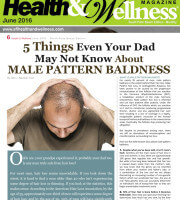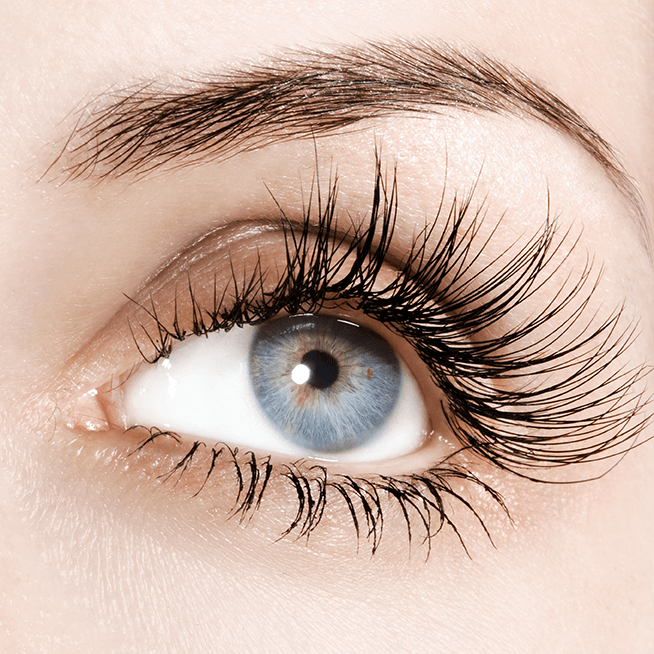How To Know If You Will Go Bald
Bald | GQ Magazine | by Adam Hurley w/ GQ Guest Expert: Dr Alan J Bauman, MD, ABHRS
“Am I going bald?” is a question many men may ask themselves in the mirror each morning–especially if they’ve seen a close family member lose their hair. For some, hair loss is an easily acceptable sign of age. For others, seeing their hairline recede or bald spot developing in the crown area–or just the thought of that happening–can be a frustrating problem.
Many have heard the old myth that male pattern hair loss is genetically passed on from your mother’s father–and while there is an X-chromosome-linked grain of truth to that theory, the reality is that predicting genetic hair loss can be much more complicated than that.
What are the early signs of baldness?
What is “invisible baldness?”
How do I know if hair thinning is occurring BEFORE it becomes completely obvious to everyone around me?
What can I do to keep my hair from thinning, receding and falling out?
How do I reduce the size and amount of hair transplants I will need over time?
GQ Magazine asked me for some advice on this topic, so check out my responses below in an excerpt from the GQ article.
The most important thing to do if you think you are losing your hair is to seek early professional, medical help from an experienced and qualified hair loss expert who is ABHRS-certified by the American Board of Hair Restoration Surgery, IAHRS-accepted by the International Alliance of Hair Restoration Surgeons, a Fellow of the International Society of Hair Restoration Surgery or FISHRS, and proficient in the medical management of hair loss and results-tracking.
To Your Hair’s Health,
Dr Alan Bauman – Medical Director – Bauman Medical
Excerpt From GQ Magazine: “How to Know If You Will Go Bald” by Adam Hurley & Guest Expert Dr Alan J Bauman
There’s a rumor we’d like to end, here and now: Your odds of hair loss are not dependent on the genes inherited from your mother’s father.
Like anything else, genes from mom can play a role. But she’s only half the pie. You can also inherit these genes from your father, says Dr. Alan J. Bauman, Hair Restoration Physician and founder of Bauman Medical. “Hair-loss genes can be inherited from either your mother’s or father’s side of the family, or a combination of the two,” he says. He adds that there are roughly 200 different genes that regulate your hair growth, so the combination of these genes—from both parents—can be unique and won’t always pattern itself from one sibling to the next.
Decades ago, this would have been the most accurate way of determining your odds—looking at old photos of your ancestors—but now there are more scientific means of predicting hair loss. These days, your doctor can take a swab of DNA from the saliva inside your cheek, and it will show how sensitive you are to dihydrotestosterone (known as DHT, which is the hormone created by the body’s testosterone). This swab will also tell you your odds for balding (and how quickly), and can predict how you might react to hair-loss medications like Propecia or Finasteride treatment.
What Specifically Causes Hair Loss?
Hair loss can start as soon as puberty ends, depending on your hereditary sensitivity to DHT. That phrasing is key: Bauman stresses that it is not DHT production that causes hair loss, it’s the inherited sensitivity to DHT that causes the loss. Those with high sensitivity will be the first to experience a weakening in their follicles. This results in thinning around the crown and hairline, and lighter pigment in the hair. Behaviors that increase DHT production will magnify the loss depending on sensitivity. These behaviors include smoking, creatine supplements, resistance and weight training exercise, stress, and taking anabolic steroids or testosterone hormone replacement.
How Hair Loss Progresses
One-fifth of men will experience significant hair loss by age of 20(!), and that percentage grows proportional to age. Bauman says that significant loss increases steadily with age: 30 percent will experience it in their 30s, 40 percent in 40s, and so on. “This math proves true for men into their 90s,” he says. “If you go unchecked but have maintained most of your hair by middle age, then your sensitivity to DHT is probably on the low side, meaning you have a slower rate of male pattern hair loss going on.”
Symptoms of gradual hair loss are sometimes hard to notice until nearly half the hair is gone. The most obvious signs are a thinning of the temples and hairline recession. Otherwise, the hair loss can be more widespread and balanced. This steady shedding is called “invisible baldness”, since the hair becomes gradually less dense until suddenly it is perceptible to the naked eye. “In general, hair loss is a chronic, progressive condition that gets worse over time without treatment,” Bauman says.
However, there are also ways to measure this “invisible baldness”. Bauman utilizes two procedures—HairCheck and HairCam—to track the hair-loss progression over time,. This periodic audit can soon paint your long-term hair-loss outlook by offering in-depth looks at density, recession, and more.
Also, you may have noticed that men, when they bald, never lose the hair around the sides and back of the head. Bauman says it is unknown why these follicles are immune to DHT, but this does explain why they’re the follicles used for transplants to increase coverage up top.
How to Strengthen Your Follicles and Slow Hair Loss
Regardless of your sensitivity to DHT, you will likely experience hair loss over time. It’s part of aging, says Bauman. Look at the odds: 90 percent of 90-year olds have experienced significant loss. However, you can slow down the fall-out rate, and not just with Propecia, Rogaine, and transplants.
Start by getting good sleep, consistently. Cut back on smoking and drinking, both of which compromise the hair’s fiber production. Bauman says to avoid certain medications, like antihypertensives (which prevent high blood pressure complications), hormone treatments (such as thyroid or testosterone hormone replacement), statin drugs, mood modulators (like antidepressants and anti-anxiety agents), all of which that can hinder the hair’s growth and strength. And, as mentioned, avoid supplements like creatine, which will increase DHT production and thus accelerate loss.
In addition to behavioral changes, Bauman says you can slow hair loss by taking routine nutritional supplements. He recommends a professional-grade Biotin, called Viviscal Professional or Nutrafol Men. “Nutrafol targets several possible triggers for hair loss and hair thinning, including inflammation, the effects of cortisol (stress hormones), free radical damage, and more.” He also suggests using grooming products that contain caffeine like Davines’ Energizing lineup), saw palmetto (Serenoa Repens) such as MiN New York daily shampoo, and green tea extracts (ECGC) like Paul Mitchell’s scalp care assortment. “These can help strengthen the follicles and help prevent shedding,” he says.
As soon as you correct detrimental behaviors or seek treatments (both medical and natural), you’ll start to improve your hair’s longevity, regardless of your sensitivity to DHT. Yes, you may still lose it, but loyalty to this regimen will buy you time.
If you or someone you know has hair loss, hair thinning, baldness, or eyebrow / eyelash concerns, click to start either a long-distance virtual consultation OR an in-person, in-office consultation with Dr. Bauman. You can also Ask Dr. Bauman a Question or simply call Bauman Medical Group at +1-





 5 Things Even Your Dad Didn’t Know About Male Pattern Baldness
5 Things Even Your Dad Didn’t Know About Male Pattern Baldness ARTICLE: How to Medically Restore Aging Hair This New Year
ARTICLE: How to Medically Restore Aging Hair This New Year Frequently Asked Questions About PRP For Hair Regrowth FAQs
Frequently Asked Questions About PRP For Hair Regrowth FAQs Dr. Alan J. Bauman, M.D.Hair Loss & Hair Transplant ExpertBoca Raton, FL
Dr. Alan J. Bauman, M.D.Hair Loss & Hair Transplant ExpertBoca Raton, FL






